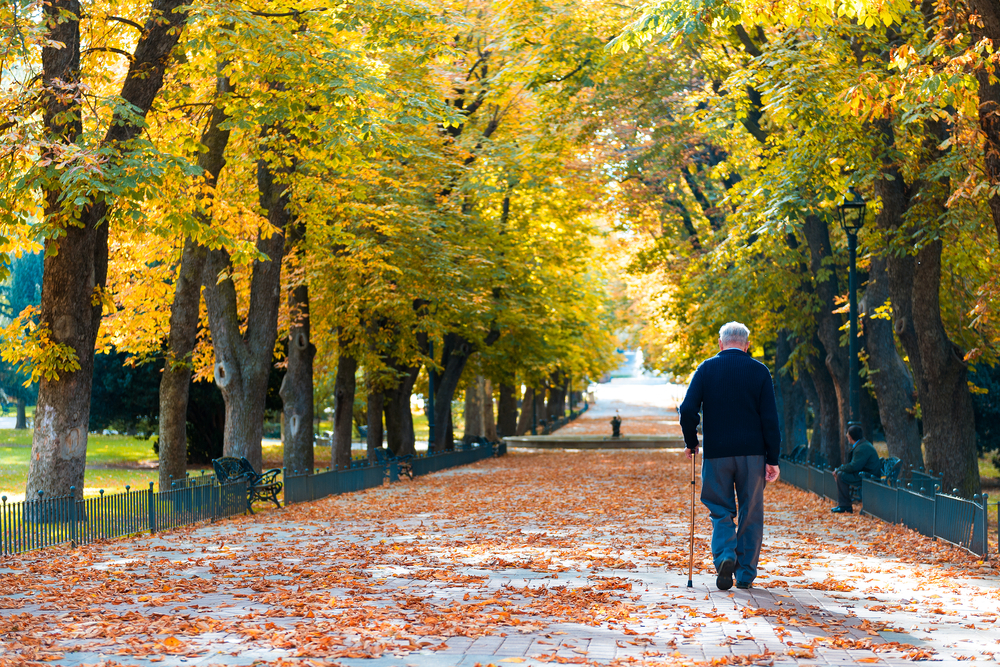4 Ways Seniors and Caregivers Can Prevent and Manage Seasonal Depression
As seasons change, so can our moods. For many senior individuals and caregivers, seasonal depression can linger in the air. It can arrive out of the blue or become worse in the winter and disappear into spring. The lack of sunlight, bad weather, colder temperatures and feelings of isolation can lead to seasonal affective disorder (SAD) which is also known as ‘winter depression’. It’s not uncommon for senior individuals to experience seasonal depression as they tend to spend more time indoors to stay warm or due to health and mobility issues.
A persistent low mood, feeling unsociable, loss of interest in everyday activities, lack of energy, changes in appetite, sleeping problems are common symptoms of seasonal depression. Bear in mind, symptoms can differ from person to person. Are you experiencing these similar symptoms? If so, we are sorry that you are feeling this way. The good news is there are different ways to help prevent and manage seasonal depression. In this blog article, we will walk you through 4 of these ways, in the hope that your symptoms will ease and you can embrace the winter months.
1) Get Daily Physical Exercise
One of the first steps of battling seasonal depression is to increase your exposure to natural light and to keep active. Research has shown taking a 30-minute daily walk can help you unwind, increasing your overall mood and energy levels. If you have mobility issues, try sitting in a conservatory or near a window. Starting a new activity such as jogging, joining a gym or doing exercise classes such as yoga or swimming are other ways to keep active. While the winter evenings get dark quickly, it’s worth fitting physical exercise into your morning routine, if possible when there is more natural light outdoors.
2) Maintain A Balanced Diet
Going hand in hand with daily physical exercise, a balanced diet is essential to avoid seasonal depression. Because we have less exposure to sunlight in winter, this can cause us to have a lack of Vitamin D which can be a factor to low energy and seasonal depression. This is why it is important to maintain a healthy balanced diet with Vitamin D-rich foods including red meat, liver, salmon, sardines, egg yolks, fortified milk, spreads and breakfast cereals. Otherwise, cod liver oil supplements can treat a Vitamin D deficiency. It is also worth avoiding alcohol in the winter as it can worsen seasonal depression.
3) Plan Social Activities
Once you are getting physical exercise and maintaining a balanced diet, you may feel more sociable. Winter can be isolating and lonely for many seniors and caregivers, this can contribute to seasonal depression. Therefore, nurturing your social connections is more important than ever. This can be simply done through regular phone calls and catch-ups. Participating in bingo or volunteering for the local community are more ways senior individuals can socialise with others. While maintaining a healthy and consistent routine can ease seasonal depression for some, other seniors and caregivers are in higher spirits after they take a break away from their normal routine if they are fortunate enough to do so. This may include a day trip, a weekend staycation or a holiday abroad with family or friends.
4) Seek Professional Help
If you are still experiencing seasonal depression, it might be time to seek professional help. Speak to your doctor or see a therapist. They can diagnose seasonal affective disorder and help you determine the right steps for your needs. Additionally, keeping a journal and writing down your thoughts and symptoms can help identify triggers as well as helping you identify negative feelings earlier on.
How Hands On Care Can Help
Whether you are 25 or 75 years of age, seasonal depression affects around 2 million people in the UK. If you are one of them, you are not alone. At Hands On Care, we have over 10 years’ experience in the home care industry, so we understand what challenges come with being a caregiver and what difficulties senior individuals experience with age.
If you are battling seasonal depression, our friendly team of personal carers can provide extra assistance and support across Shropshire homes. If you need someone to help with your everyday activities, outings, medication support, or simply call for a cup of tea, please get in touch with Hands On Care by calling us on 0195 274 3490 or emailing us on info@hands-on-care.co.uk. Our goal is to make life easier for our clients who prefer to be cared for in their own homes and improve their quality of life.

